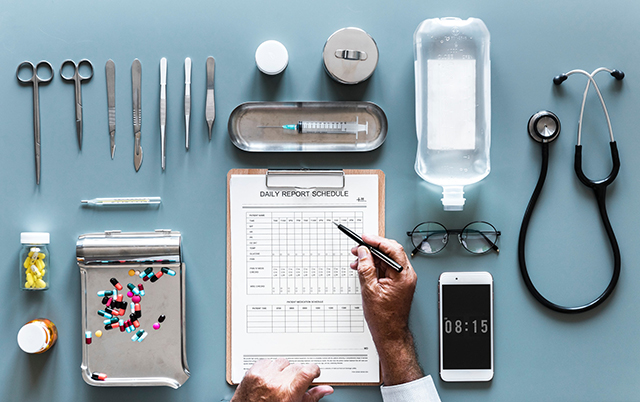The STAR (Smart Tissue Autonomous Robot) can perform surgical cuts on a patient with precise accuracy. Its job is to remove the cancer-forming cells while keeping the healthy tissue intact. While it still has some ways to go to be fully autonomous, the STAR is just one of the recent breakthroughs in modern medicine. Artificial Intelligence in healthcare is helping to save thousands of people per day throughout the world.Innovations can be as complex as the STAR or as simple as an intelligent application that manages healthcare records. Regardless of complexity, the use of Artificial Intelligence in healthcare is improving the level of care we receive beyond the capacity of any physician.By simply applying Artificial Intelligence to healthcare records, the NeuroChain platform can compare your age, family origin, symptoms, and other pertinent health information against thousands of other related cases. With access to various treatment options, the algorithm presents the best course of action based on the data available. As more healthcare providers share patient data through the NeuroChain platform, the machine will be able to make better decisions. But don’t worry, the data access and sharing are secure, and cannot be associated with you individually. The algorithm will also be able to detect and prevent an epidemic outbreak. In the future, the technology may even be able to send prescriptions to your pharmacy. NeuroChain technology would be pertinent to ensure prescriptions are sent securely and accurately. NeuroChain technology could detect if users are abusing the technology by requesting the same prescriptions from several apps.Perhaps sometime in the future, if allowed by the legislation, you could avoid the extra headache of going to the doctor’s office by using one of the several smartphone applications that can accurately diagnose illnesses and recommend treatment options. If the algorithm believes that your symptoms require further attention, it can recommend that you seek further medical attention. In such case, your visit could be expedited since the doctor already has your data available.As new innovation surface, new possibilities arise on the frontier. The applications of Artificial Intelligence in healthcare are endless. A report published in 2016 states that around 86% of healthcare providers are already using Artificial Intelligence in some capacity. As mid-2018 approaches, that number is predictively nearing 95%. It wasn’t long ago that your healthcare information was stored in a simple manila folder.
In the future, the technology may even be able to send prescriptions to your pharmacy. NeuroChain technology would be pertinent to ensure prescriptions are sent securely and accurately. NeuroChain technology could detect if users are abusing the technology by requesting the same prescriptions from several apps.Perhaps sometime in the future, if allowed by the legislation, you could avoid the extra headache of going to the doctor’s office by using one of the several smartphone applications that can accurately diagnose illnesses and recommend treatment options. If the algorithm believes that your symptoms require further attention, it can recommend that you seek further medical attention. In such case, your visit could be expedited since the doctor already has your data available.As new innovation surface, new possibilities arise on the frontier. The applications of Artificial Intelligence in healthcare are endless. A report published in 2016 states that around 86% of healthcare providers are already using Artificial Intelligence in some capacity. As mid-2018 approaches, that number is predictively nearing 95%. It wasn’t long ago that your healthcare information was stored in a simple manila folder.
NeuroChain, let’s build a better world!
Photo credits:pexelsFollow us on Telegram, Facebook, Twitter and YouTube. If you have any questions, feel free to get in touch with NeuroChain Team, and we will answer you as soon as possible!

Leave a Reply